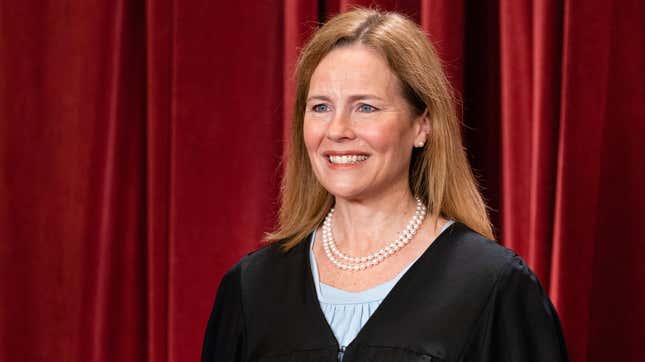Amy Coney Barrett Authors SCOTUS Opinion Supporting Native Families
Barrett writing the majority opinion upholding the Indian Child Welfare Act has drawn renewed attention to her own adoption of two children from Haiti.
JusticePolitics

In a crucial Supreme Court ruling for the rights and sovereignty of Indigenous people on Thursday—the second suspiciously liberal SCOTUS decision of the session—Justice Amy Coney Barrett wrote the majority opinion upholding the Indian Child Welfare Act (ICWA) and shutting down challenges to Congress’ authority to enforce the ICWA.
The ICWA, passed by Congress in 1978, requires state courts to notify the tribes of Indigenous children amid custody disputes and allow the child’s tribe to intervene. The law also requires courts to make “active efforts” to prevent the separation of Native families and mandates that if a Native child is to be placed in a new home, courts must prioritize giving custody of the child to members of their extended family or tribe. Under ICWA, records of these custody cases must also be shared with the secretary of the interior.
In Haaland v. Brackeen, Barrett—joined by the three progressive Justices as well as Justices Neil Gorsuch, Brett Kavanaugh, and John Roberts—determined that contrary to a legal challenge posed by the Texas government and several foster parents, Congress has the authority to enforce ICWA. It’s a correct and important decision, as Indigenous communities face continued threats to their safety and existence. But nonetheless, the centering of Barrett—who has two adopted children of color—in the majority opinion has garnered a mix of surprised and uncomfortable reactions.
-

-

-

-

-

-

-

-

-

-

-

-

-

-

-

-

-

-

-

-

-

-

-

-

-

-

-

-

-

-

-

-

-

-

-

-

-

-

-

-








































